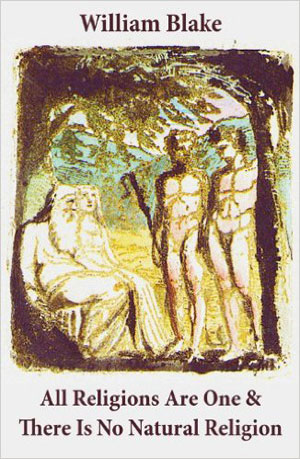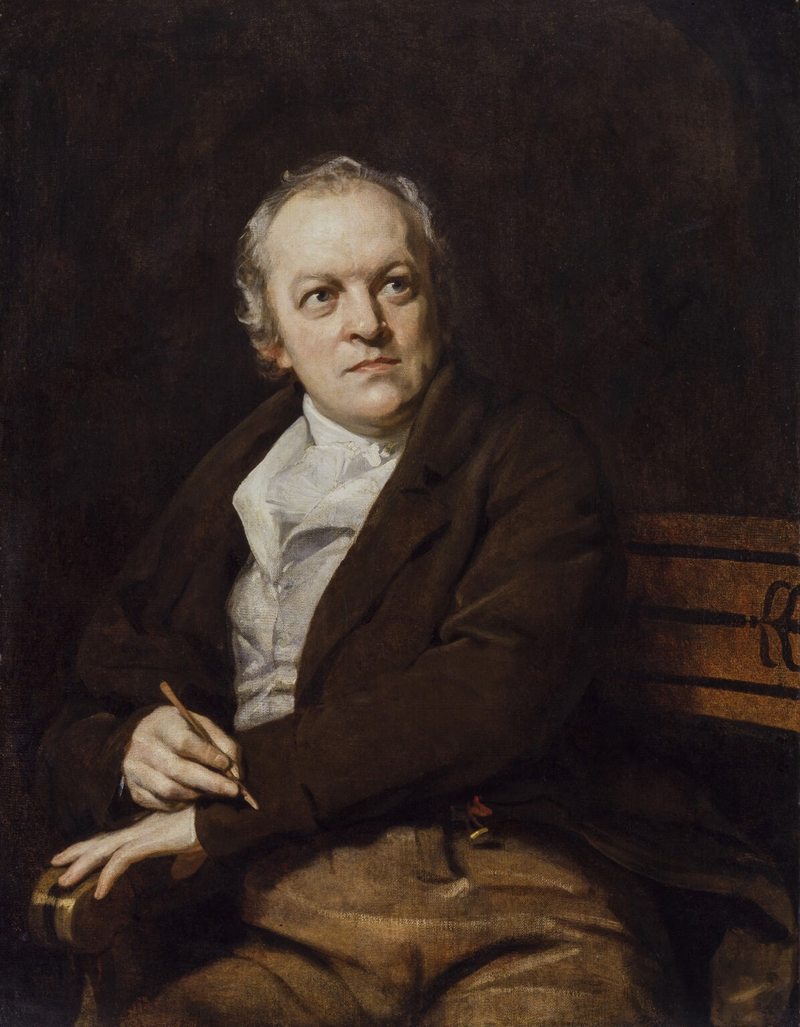
Image: Public Domain
The art of the poetic genius
The Voice of one crying in the Wilderness
ALL RELIGIONS ARE ONE (1788) is a relief etching by one of the world’s most profound mystical poets ever to have lived. Written as a series of philosophical aphorisms, William Blake’s exquisite pamphlet is a statement of his views on the very nature of existence, which would inform his vast corpus of work for the rest of his artistic career.
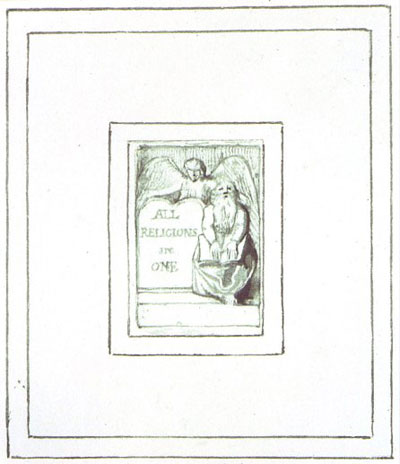
All Religions Are One.
Image: Public Domain
The Argument
As the true method of knowledge is experiment the true faculty of knowing must be the faculty which experiences, This faculty I treat of
A composition of extraordinary beauty and simplicity, Blake’s illuminated manuscript is a proclamation of fundamental principles regarding God’s revelation to the world. Presented as tablets of law, he declares that every religion, every sect, every creed, has originated in the glory of divine grace.
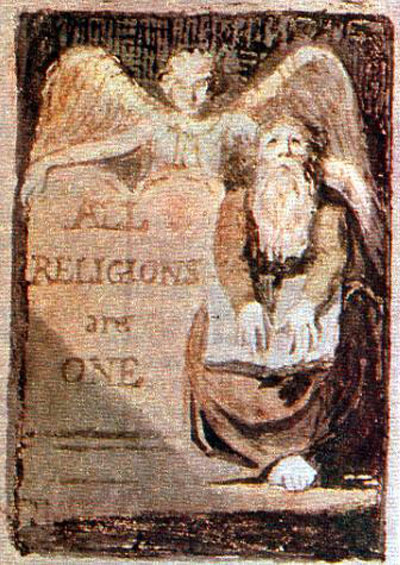
All Religions Are One.
Image: Public Domain
PRINCIPLE 1st
That the Poetic Genius is the true Man. and that the body or outward form of Man is derived from the Poetic Genius. Likewise that the forms of all things are derived from their Genius. which by the Ancients was call’d an Angel & Spirit & Demon
Owing to the filter of human consciousness, however, each domination takes on anthropoid characteristics despite being infused with the essence of God. And yet it is this very substratum of our being wherein lies a “Poetic Genius”, akin to the imagination, which has the power to procreate and make manifest creative endeavour.
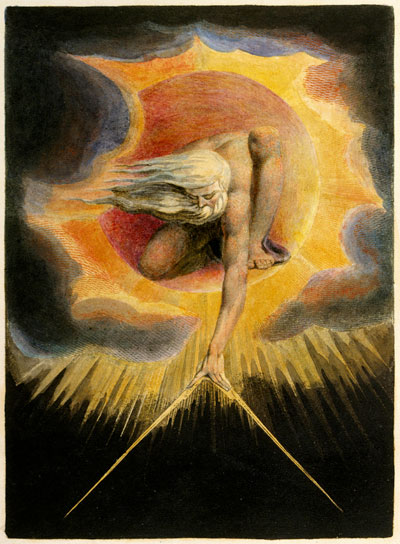
Image: Public Domain
PRINCIPLE 2d
As all men are alike in outward form, So (and with the same infinite variety) all are alike in the Poetic Genius
William Blake (28th November 1757–12th August 1827) was an English poet, painter, printmaker and publisher. Largely unrecognized during his lifetime, he is now considered a seminal figure of the Romantic movement. Like his counterparts Percy Bysshe Shelley, John Keats, Samuel Taylor Coleridge and William Wordsworth, Blake sought to honour the realm of feelings and emotion as the most profound expression of the human soul.
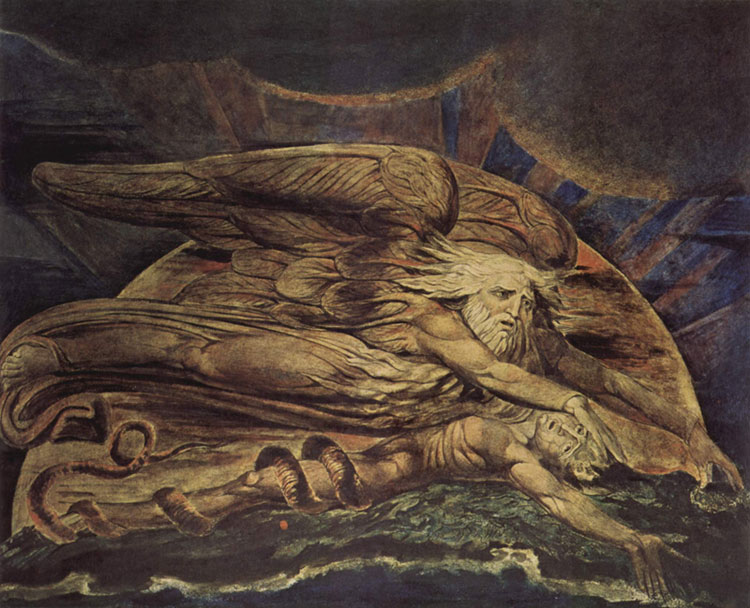
Image: Public Domain
PRINCIPLE 3d
No man can think write or speak from his heart but he must intend truth. Thus all sects of Philosophy are from the Poetic Genius adapted to the weaknesses of every individual
Principally known for his poetry, he also wrote metaphysical tracts, expounding his unique vision of the world, often in contradistinction to prevailing taste. Indeed, the ideas of the rational Empiricist thinker, John Locke were predominant at the time when All Religions Are One was published.
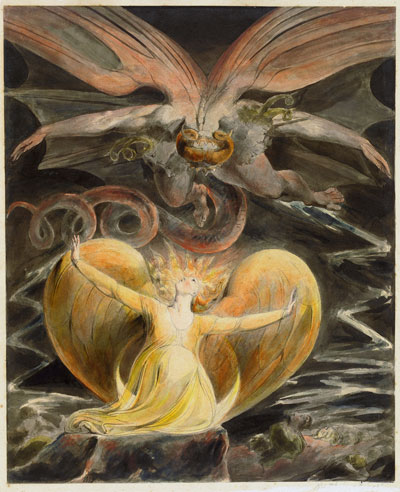
and the Woman Clothed in the Sun.
Image: Public Domain
PRINCIPLE 4
As none by traveling over known lands can find out the unknown. So from already acquired knowledge Man could not acquire more. there fore an universal Poetic Genius exists
Locke posited that human beings have no innate morality or knowledge of the world and, as such, we are only able to perceive external reality through the senses, acquiring and processing knowledge from our interpretation of sensorial stimuli and accumulated experience.
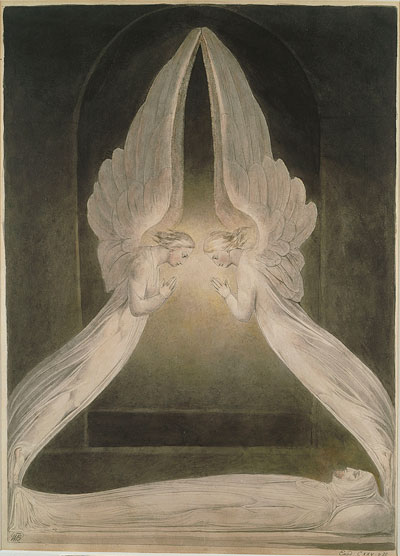
Guarded by Angels.
Image: Public Domain
PRINCIPLE 5
The Religions of all Nations are derived from each Nations different reception of the Poetic Genius which is every where call’d the Spirit of Prophecy
Blake, on the other hand, contradicts this view, believing that all that makes us human is not simply a byproduct or epiphenomenon of conditioned response; rather, we are imbued with an innate and intimate awareness of our existence in relation to the cosmos, one which transcends rational knowledge and even sense perception itself.
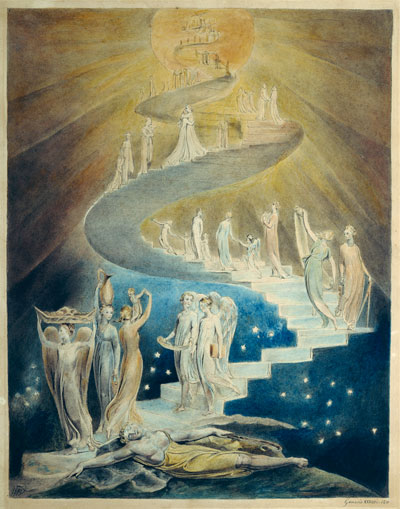
Image: Public Domain
PRINCIPLE 6
The Jewish & Christian Testaments are An original derivation from the Poetic Genius. this is necessary from the confined nature of bodily sensation
Indeed, the Poetic Genius within us is none other than God, a microcosm of the omnipresent cosmic imagination that permeates and sustains the entire universe, allowing us to experience and assimilate the world through the very eyes of the Creator being supreme.
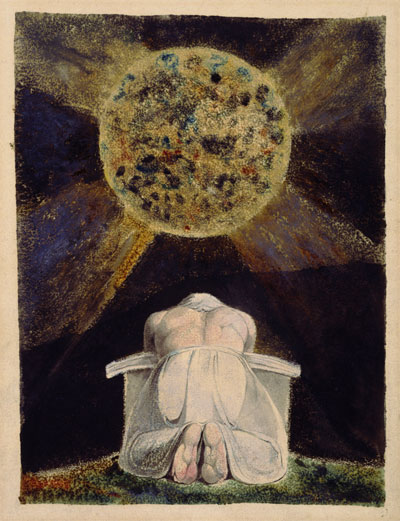
Image: Public Domain
PRINCIPLE 7d
As all men are alike (tho’ infintiely various) So all Religions & as all similar have one source The true Man is the source he being the Poetic Genius
William Blake’s theology initiated him into a long and perennial tradition of mystical thinkers, who rejected conventional, dualistic wisdom by embracing a unified worldview. Nevertheless, he was utterly unique in the way in which he communicated his vision through his visual artistry, creating a body of work unsurpassed in its affecting affirmation of all that is timeless, wise and beautiful.
Post Notes
- The William Blake Archive
- Eric Nicholson: William Blake’s Vision of the Book of Job
- Percy Bysshe Shelley: The Cloud
- Rousseau: Meditations of a Solitary Walker
- Carl Gustav Jung: The Red Book, Liber Novus
- Rollo May: My Quest for Beauty
- Kahlil Gibran: Poet, Painter, Prophet
- Nicholas Roerich: Beautiful Unity
- Bill Viola & Michelangelo: Life Death Rebirth
- Albert Camus: Jonas or The Artist at Work
- Kathleen Raine: The Land Unknown
- Mark Rothko: The Artist’s Reality
- Michael Molinos: The Spiritual Guide
